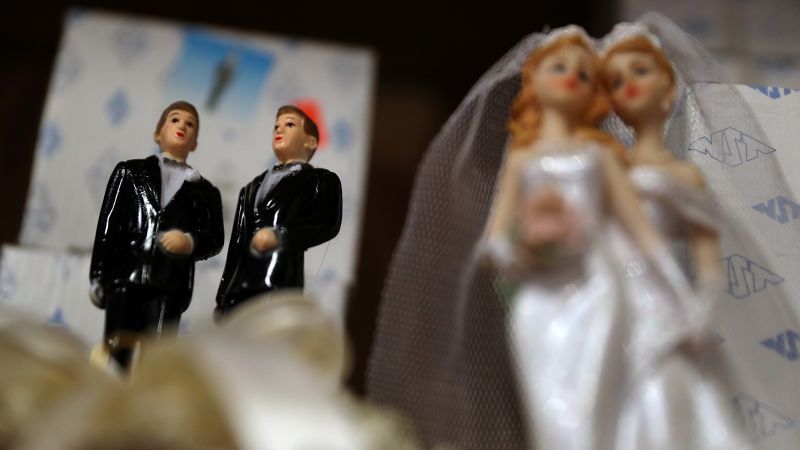The Colorado web designer who wanted to refuse LGBTQ customers and just won her case at the Supreme Court had claimed in court filings that a man inquired about her services for his same-sex wedding.
But the man says he never reached out to Lorie Smith, the web designer who argued at the Supreme Court that she shouldn’t be forced to create same-sex wedding websites because of her religious objections. In fact, the man says he’s straight and married to a woman.
The man was identified as “Stewart” in court filings and as someone who requested graphic designs for invitations and other materials for a same-sex wedding with his fiancé, Mike. CNN contacted Stewart through information in court filings. He asked for his last name, which is not in the filing, not to be used.
In an interview with CNN Friday, Stewart said that he “did not submit a request” to the company, 303 Creative, and is a “happily married man to a woman of 15 years.”
“I don’t know Mike,” Stewart said. “I’ve never asked anybody to design a website for me, so it’s all very strange. I certainly didn’t contact her, and whatever the information in that request is, is fake.”
Stewart, who previously worked for CNN, said that he is a web designer himself, and that “it would make zero sense to hire a web designer when I can do that for myself.”
Stewart said he was unaware of his information being a part of the court record until he was contacted by media outlet The New Republic on Wednesday.
“It is concerning that nobody connected with this case over the last six years has ever thought to call me, email me, text me to try and corroborate that communication in any way,” he said, adding: “I don’t necessarily think that would be a tipping point in this case at all, but at the very least … a case of this magnitude should be corroborated, should be fact checked along the way.”
CNN reached out to Smith for comment. Kellie Fiedorek, a senior counsel at Alliance Defending Freedom, which represented Smith, said in a statement that Smith “doesn’t do background checks on incoming requests to determine if the person submitting is genuine.”
“Whether Lorie received a legitimate request or whether someone lied to her is irrelevant,” Fiedorek said. “No one should have to wait to be punished by the government to challenge an unjust law.”
“Moreover, Lorie has received other wedding requests and has been unable to respond to any request because that put her at risk of punishment for violating Colorado’s unjust law,” Fiedorek said, referring to an anti-discrimination law in the state.
Stewart called the Supreme Court’s decision Friday morning “disgraceful” and said that “it does seem like the entire case has been somewhat concocted to achieve a specific outcome.”
“As a designer, I think designers can refuse to do work for a prospective client for any number of reasons,” Stewart said. “Race, gender, sexual orientation should not be one of those.”
Read the full article here




